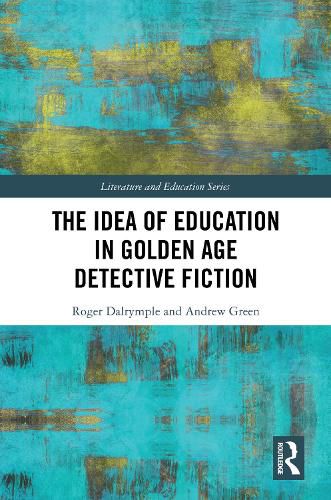Readings Newsletter
Become a Readings Member to make your shopping experience even easier.
Sign in or sign up for free!
You’re not far away from qualifying for FREE standard shipping within Australia
You’ve qualified for FREE standard shipping within Australia
The cart is loading…






This book presents an exploration of how Golden Age detective fiction encounters educational ideas, particularly those forged by the transformative educational policymaking of the interwar period.
Charting the educational policy and provision of the era, and referring to works by Agatha Christie, Dorothy L. Sayers, Edmund Crispin and others, this book explores the educational capacity and agency of literary detectives, the learning spaces of the genre and the kinds of knowledge that are made available to inquirers both inside and outside the text. It is argued that the genre explores a range of contemporaneous propositions on the balance between academic curriculum and practicum, length of school life and the value of lifelong learning. This book's closing chapter considers the continuing pedagogic value for contemporary classrooms of engaging with the genre as a rich discursive and imaginative space for exploring educational ideas.
Framing Golden Age detective fiction as a genre profoundly concerned with learning, this book will be highly relevant reading for academics, postgraduate students and scholars involved in the fields of English language arts, twentieth-century literature and the theories of learning more broadly. Those interested in detective fiction and interdisciplinary literary studies will also find the volume of interest.
$9.00 standard shipping within Australia
FREE standard shipping within Australia for orders over $100.00
Express & International shipping calculated at checkout
This book presents an exploration of how Golden Age detective fiction encounters educational ideas, particularly those forged by the transformative educational policymaking of the interwar period.
Charting the educational policy and provision of the era, and referring to works by Agatha Christie, Dorothy L. Sayers, Edmund Crispin and others, this book explores the educational capacity and agency of literary detectives, the learning spaces of the genre and the kinds of knowledge that are made available to inquirers both inside and outside the text. It is argued that the genre explores a range of contemporaneous propositions on the balance between academic curriculum and practicum, length of school life and the value of lifelong learning. This book's closing chapter considers the continuing pedagogic value for contemporary classrooms of engaging with the genre as a rich discursive and imaginative space for exploring educational ideas.
Framing Golden Age detective fiction as a genre profoundly concerned with learning, this book will be highly relevant reading for academics, postgraduate students and scholars involved in the fields of English language arts, twentieth-century literature and the theories of learning more broadly. Those interested in detective fiction and interdisciplinary literary studies will also find the volume of interest.